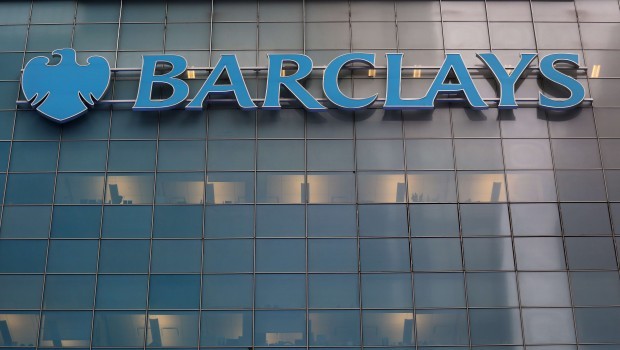
The Barclays building in Midtown Manhattan on September 16, 2013, in New York City. (John Moore/Getty Images/AFP)
London, Reuters—Barclays Plc said it is bringing in outside help to speed up an investigation into alleged misconduct in its “dark pool” operations, which have rekindled concerns that the cost of past problems at its investment bank will rise.
More than 2 billion pounds (3.4 billion dollars) was wiped off Barclays’ market value on Thursday after New York’s attorney general filed a lawsuit against the British bank, accusing it of trying to grab extra profits from its alternative trading system while promising to get the best possible prices for customers.
The shares stabilised on Friday and were up 0.6 percent at 216.2 pence by 12:00 GMT after tumbling 6.5 percent to a 19-month low on Thursday.
Dark pools allow institutional investors to trade large blocks of shares anonymously. Prices are posted only after deals are done, and the pools were created so that investors do not suffer a disadvantage by signalling their big orders.
But ever-larger volumes of trades have been shunted into them and critics say the opacity of the markets may be resulting in more investors getting ripped off.
Barclays’ dark pool business, called LX, originally belonged to Lehman Brothers, the investment bank that collapsed in 2008. Barclays subsequently bought Lehman’s US business. The business under scrutiny generates relatively modest revenues for the bank.
The 31-page summons issued by the attorney general said internal Barclays documents valued the growth opportunity from pushing more orders into its dark pool at between 37 million dollars and 50 million dollars per year.
Total revenues for the dark pools business may be 100 million to 200 million dollars, industry sources and analysts estimated, out of 4.6 billion dollars in equities revenues last year.
Analysts said the hit to its shares reflects broader concern that customers may leave Barclays, that Chief Executive Antony Jenkins will struggle to turn around the bank’s culture as quickly as he needs to, and the threat of higher-than-expected litigation costs on a range of issues.
“The complaint reminds investors of the litigation burden that faces the sector and Barclays,” said Michael Helsby, analyst at Bank of America Merrill Lynch.
Barclays has been hit by series of scandals in recent years, including its role in the rigging of the Libor interest rate which cost chief executive Bob Diamond his job in 2012, leading to huge fines and legal bills.
Helsby raised his estimate of possible litigation costs for Barclays to 7.5 billion pounds over the next three years, from 2.4 billion, and cut his price target on the stock to 285p from 350p.
“The dark pool allegations are a reminder that 7 years into the financial crisis there are still ‘unknown, unknowns’ that are capable of knocking the shares aggressively, raising questions about Barclays’ integrity and franchise,” said Helsby.
Barclays, which has 20 days to respond to the lawsuit, said on Friday it was still assessing the complaint.
Barclays could suffer a litigation cost of 163 million dollars from the dark pool activities, analysts at Credit Suisse estimated.
Jenkins told staff in a memo issued on Thursday he had started an internal investigation into the allegations. “To assist us in that we have brought in substantial external resource to ensure that the investigation can proceed at pace and is properly objective,” the memo said.
The bank declined to comment who that would involve. It typically uses law firms Clifford Chance in Britain and Sullivan & Cromwell in the United States.
Jenkins is trying to restore Barclays’ reputation but the emergence of past sins are hampering his efforts. Last month it was fined 26 million pounds for past failures in internal controls that allowed a trader to manipulate the setting of gold prices.
Rival banks have pulled business out of Barclays’ dark pool, the Financial Times reported. Deutsche Bank, Credit Suisse and Royal Bank of Canada, and asset manager Alliance Bernstein had all withdrawn from the dark pool, it said.
Barclays has the second most active alternative trading system in the United States after Credit Suisse, according to regulator Finra. They are followed in size by UBS, Bank of America Merrill Lynch, Morgan Stanley, Deutsche Bank and Goldman Sachs.
Shares in other banks also fell after the Barclays lawsuit, on concern that others will also be targeted. US authorities have been investigating the business for up to a year to assess if dealers are ripping off investors in increasingly automated stock markets.
